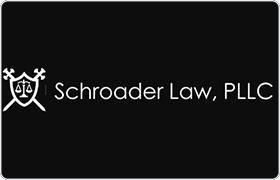Buckley Criminal Lawyer, Washington
Sponsored Law Firm
-
 x
x

Click For More Info:
-
Schroader Law, PLLC
1105 Tacoma Ave S Tacoma, WA 98402» view mapCriminal Defense Exceptional Legal Service
Schroader Law, PLLC offers superior service from start to finish. Attorney Schroader is a knowledgeable lawyer offering comprehensive legal advice with realistic expectations.
800-916-9671
P. Gail Crawford
Federal, Estate Planning, Family Law, Criminal
Status: In Good Standing Licensed: 40 Years
Joshua Allen Reich
Civil Rights, Labor Legislation, State Government, Criminal
Status: In Good Standing Licensed: 48 Years
 Dennis Schroader Tacoma, WA
Dennis Schroader Tacoma, WA Practice AreasExpertise
Practice AreasExpertise
